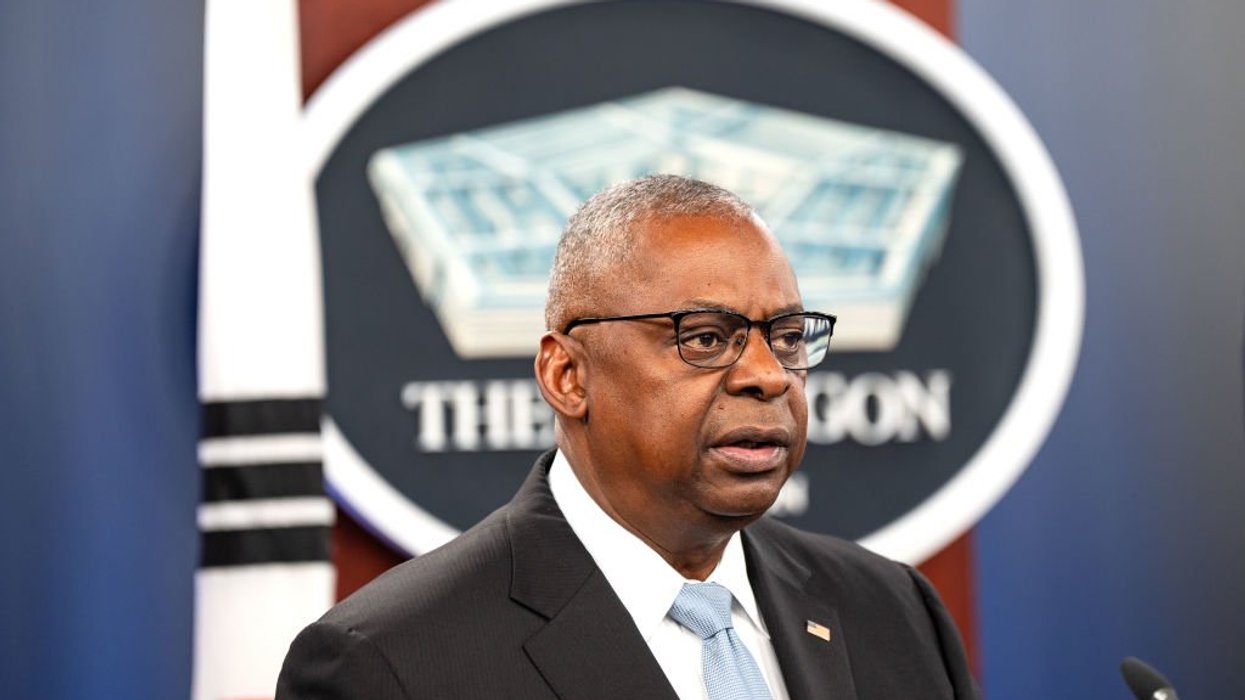
Kent Nishimura / Getty Images

Defense officials are preparing for Trump to make good on his promises.
Days prior to the 2020 presidential election, former Chair of the Joint Chiefs of Staff Mark Milley telephoned his communist Chinese counterpart, General Li Zuocheng. Milley reportedly reassured Zuocheng that he would provide him with actionable warnings should his commander in chief, then President Donald Trump, decide to attack, thereby nullifying the strategic advantage of a possible American surprise attack for the benefit of an adversarial nation.
According to Bob Woodward and Robert Costa's book "Peril," Milley also plotted in secret to deprive the American president of his ability to swiftly defend the nation with nuclear weapons, telling senior military officials in charge of the National Military Command Center not to follow orders unless he personally gave the green light.
It appears Pentagon officials are once again figuring out ways of undermining Trump, possibly at the nation's expense.
Defense officials recently told CNN that elements of the Department of Defense have been holding informal discussions about how they might respond to Trump orders they find objectionable, such as the firing of redundant bureaucrats or the domestic deployment of troops.
'There is huge risk in disobeying a president's order.'
"We are all preparing and planning for the worst-case scenario, but the reality is that we don't know how this is going to play out yet," said one defense official.
Among the concerns reportedly entertained by would-be obstructors is that Trump might deploy active-duty forces to help Customs and Border Protection — something military officials were happy to do when President Joe Biden took office. It appears the difference is that Trump might use the forces effectively.
One former senior DOD official noted that unlike the military, law enforcement agencies "don't have the manpower, they don't have the helicopters, the trucks, the expeditionary capabilities" that are likely necessary to execute Trump's mass deportation plan. While using the military to make good on Trump's campaign promise is sensible, "it is a big deal," suggested the official.
Sending troops into American cities is hardly unprecedented. For instance, President George H.W. Bush invoked the Insurrection Act during the 1992 Los Angeles race riots and tasked federal troops with restoring order.
'We will clean out all of the corrupt actors.'
Defense Secretary Lloyd Austin issued a memo following Trump's landslide victory, directing the military to "make a calm, orderly, and professional transition to the incoming Trump administration."
Austin also made a point of specifying that the military must obey "lawful" orders.
"The U.S military will stand ready to carry out the policy choices of its next Commander in Chief," wrote Austin, "and to obey all lawful orders from its civilian chain of command."
"Troops are compelled by law to disobey unlawful orders," one defense official told CNN. "But the question is what happens then — do we see resignations from senior military leaders? Or would they view that as abandoning their people?"
Kori Schake of the American Enterprise Institute made clear to Reuters that there is a big difference between lawful orders and orders believed to be immoral.
"There is a widespread public misperception that the military can choose not to obey immoral orders. And that's actually not true," said Schake.
Rachel VanLandingham, a former Air Force attorney, told the Washington Post, "They will follow President Trump's orders, particularly because the president can lawfully order domestic use of the military in a wide variety of situations."
"There is huge risk in disobeying a president's order and seemingly little risk in obeying it," added VanLandingham.
The other big concern that insiders are reportedly "gaming out" is that Trump might trim the fat as promised, at least where government bloat is concerned.
Trump plans to reissue his 2020 executive order establishing the Schedule F employment category for federal employees, making it easier to remove insubordinate and useless bureaucrats from an estimated pool of 50,000 eligible candidates.
"I will wield that power very aggressively," Trump vowed in a March 2023 video. "We will clean out all of the corrupt actors in our national security and intelligence apparatus, and there are plenty of them."
Vice President-elect JD Vance told Tucker Carlson ahead of Election Day, "If the people in your own government aren't obeying you, you have got to get rid of them and replace them with people who are responsive to what the president's trying to do."
While Biden announced a rule earlier this year aimed at further shielding federal bureaucrats from being ousted under a framework resembling Schedule F, one defense official told CNN that "there are still ways a new administration could work around these protections."
"My email has been inundated on this topic," said an unnamed defense official. "Definitely going to be a busy couple months."
Blaze News reached out to the DOD's press operations office for comment but did not receive a response by deadline.
Like Blaze News? Bypass the censors, sign up for our newsletters, and get stories like this direct to your inbox. Sign up here!